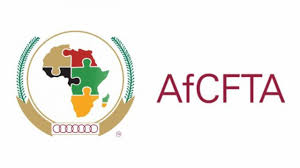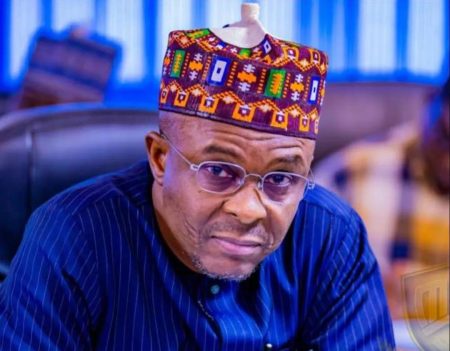 Esther Oritse
Esther Oritse
Lagos — The leadership of the Nigerian Shippers Council, NSC, has commenced moves to engage the African Continental Free Trade Area, AfCFTA, initiatives with a view to removing non-tariff barriers and streamline regulatory processes that will facilitate smoother and cost-effective cargo movement across African countries.
Speaking at the 15th Annual General Meeting of the Nigerian Maritime Law Association, NMLA, held in Lagos, weekend, Executive Secretary of the Council, Mr. Pius Ukeyima said that the collaboration is vital to realizing the potential of AfCFTA and fostering a truly integrated African market.
Ukeyima in his keynote address also said that the African Continental Free Trade Agreement provides a unique platform for enhanced intra-African trade, creating unprecedented opportunities for the Nigerian maritime industry.
He explained that AfCFTA’s framework allows Nigeria and other African countries to tap into a larger market, facilitating the seamless movement of goods across borders and positioning Nigeria as a vital hub for regional trade.
He said: “To harness the benefits of the AfCFTA and other international frameworks, we must forge strong partnerships across borders.
“By engaging with global maritime bodies, sharing knowledge, and participating in dialogues that promote mutual growth, the Council is positioning Nigeria as a leader within the regional and global maritime community.
“Our active participation in the development and promotion of national and international maritime, trade and transport frameworks enable us to adopt best practices, leverage advanced technology, and build resilience against economic and environmental challenges.
“Innovation in policy is essential for sustainability in the maritime sector. The NSC has been proactive in advocating for regulatory frameworks/reforms that promote environmental responsibility, reduce carbon emissions, and protect marine ecosystems. Policies supporting cleaner fuel alternatives, renewable energy investments, and eco-friendly port operations are critical for achieving a green future.
“Our role as the Port Economic Regulator is to set industry standards and encourage practices that align with Nigeria’s environmental commitments. Working with local, national, and international partners, the Council seeks to foster a green maritime economy and instill a culture of sustainability across the industry.
“Achieving a sustainable maritime sector demands a comprehensive approach, including investment in green Technology and infrastructure – Modernizing our ports and terminals with eco-friendly technology and infrastructure is at the core of our mission.
“By minimizing environmental impact and enhancing operational efficiency, we support Nigeria’s long term economic growth. The NSC actively promotes research and development into alternative fuels and green shipping practices, reflecting our commitment to sustainable operations.
“Capacity Building and Knowledge Transfer – A sustainable maritime sector relies on skilled professionals with a solid understanding of green practices. Through capacity-building initiatives, the NSC is focused on developing local expertise, ensuring that Nigeria has the human resources needed to lead in sustainable maritime operations. “We are also working to foster knowledge exchange under the AfCFTA, empowering Nigerian businesses to compete effectively within Africa. Strengthening Legal and Regulatory Frameworks – As the agency responsible for promoting trade facilitation and economic regulation at our ports, the Council is dedicated to collaborating with bodies like the Nigerian Maritime Law Association to establish and enforce policies that support a green maritime economy.
“Aligning our legal frameworks with international standards will create an enabling environment for sustainable practices and position Nigeria as a reliable partner in the global maritime industry. In conclusion, our journey toward a sustainable and thriving maritime sector requires steadfast dedication, policy innovation, and collaborative effort.
“The Council is committed to leading the way, fostering a green economy, and leveraging the opportunities presented by frameworks like the AfCFTA to enhance Nigeria’s role in regional and global trade. As we navigate these complexities, I am confident that, together, we can build a maritime sector that drives Nigeria’s economic growth, champion environmental stewardship, and strengthens our position within the global maritime community.
In her opening address, President of the Nigerian Maritime Law Association, Mrs Funke Agbor, a Senior Advocate of Nigeria, said that the group will focus on critical areas such as enhancing the capacity of our legal and judicial systems in maritime law, encouraging the adoption of forward-thinking policies in line with international conventions, and exploring opportunities within the Blue Economy.
“Through these efforts, we aim to support Nigeria’s aspirations to become a regional leader in maritime operations and governance.” She stated



